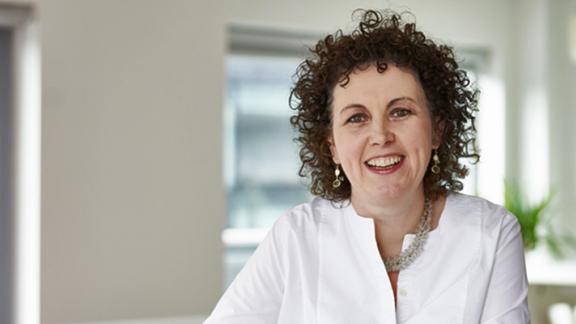Supporting people with severe mental health problems during COVID-19: how are services responding?

Ella Joseph, co-chief executive of Think Ahead, looks at how mental health services are adapting to the current situation and how prepared they are for the future.
'Mental health is going to be the follow-on epidemic,' is a prediction I’ve heard more than once recently. My charity recruits and trains graduates to join secondary mental health services, and we are already hearing that people with severe mental health problems are being deeply affected by the COVID-19 situation.
At a time when service users are facing increased risks to their physical and mental wellbeing, their usual support networks are diminished. They can’t connect with friends and family in the usual way, and their healthcare support looks very different.
Thousands of social workers in NHS mental health teams – the professionals we train – have had to hugely restrict the face-to-face work that usually forms the bulk of their role. Social workers tend to work with people who have the most severe mental illnesses, and being able to interpret body language and assess someone’s surroundings are key skills they rely on.
We interviewed social workers from 33 mental health services across England to find out how services and roles are changing, and what that means for the immediate future of mental health care. Among a mixed picture, some clear themes emerged:
Services are preparing for dramatically increased pressures
As well as adapting to working remotely, we heard of deeper changes within services. Many teams are anticipating increased demand, and expect this to coincide with reduced staffing due to illness, self-isolating and shielding.
We also heard some cases of mental health inpatients being discharged to minimise their risk of infection, which may mean more service users needing increased support in the community.
We heard a wide range of examples of how services are preparing for increased demand – from smaller changes like pooling caseloads within teams, to much more substantial transformations like teams being entirely restructured, for example by combining teams that cover different specialisms or geographical areas.
Support for service users is changing
In line with social distancing guidelines, only the most at-risk service users are getting face-to-face support. Many services are using a RAG rating system to identify the individuals most at risk, for example those who are having thoughts of suicide, or who are known not to take their medication reliably.
Despite these social distancing restrictions, social workers are still working hard to support service users. Some contact can be carried out using video conferencing platforms, although that is proving challenging with many.
In other cases, therapeutic support and interventions are able to continue by phone. One colleague told us:
“There’s already evidence with a few individuals that we work with that phone calls are more productive than office visits – they’re in their own safe space and there’s less power dynamics compared to the more formal and medicalised experience of travelling to the professional’s office, signing in at reception and waiting in a waiting room.”
Support with vital practical issues is also continuing remotely – for example ensuring that benefits are in place, and liaising with local agencies and services to resolve housing issues.
Trainees are a valuable part of the workforce, now as much as ever
As a charity recruiting and supporting trainees on their journey to qualification as social workers and beyond, we were particularly pleased to hear numerous examples of trainees proactively contributing even more than they usually do.
One colleague told us:
“Despite the uncertainty and constantly evolving challenges, [the trainees] have been exceptionally understanding, flexible and pro-active in promoting the wellbeing of service users and developing their work to fit the current restrictions.”
As well as continuing to work with service users already known to them, we heard examples of trainees reaching out to other vulnerable service users who are known to their wider team to assess their needs and those of their carers, and to establish how support can be provided. We also heard of trainees devising new systems to remotely process hospital referrals, and leading on input to Mental Health Act tribunals.
Many of these trainees are due to qualify this summer or autumn, when social workers are likely to still be in even greater demand than usual. So we were pleased to hear supervisors saying they are confident that trainees are still on track to develop the competencies they require.
Where next?
Overall, we found a picture of teams working incredibly hard, in very stressful conditions, to put creative solutions in place and provide the best possible care. I am blown away by the speed and effectiveness of their immediate crisis response. The question, now, is where things go from here – and how services can prepare for the wider mental health impacts of this crisis, which are only just beginning.
Ella Joseph is co-chief executive of Think Ahead. Follow them on Twitter @ThinkAheadMH



